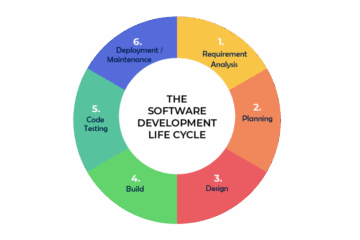
Many great innovations build on what has gone before. Isaac Newton acknowledged and developed others’ ideas to leave a lasting impact.
On 5 February 1676, Isaac Newton – already regarded as one of the greatest scientists of the age – wrote to his friend and rival Robert Hooke, praising him for his contributions to science:
“What Descartes did was a good step. You have added much several ways… If I have seen further it is by standing on the shoulders of Giants.”
This simple phrase provides lessons for those striving to make a lasting impact. Here are four lessons we can all learn from Newton:
1. Innovation rarely happens in isolation
Seeking out diverse perspectives has been shown to lead to previously unthinkable breakthroughs. Many of the world’s greatest leaps forward have been built through developmental innovation – delivering incremental improvements, rather than starting from a clean slate. At the same time, teamwork, discussion and collaboration are crucial to developing new approaches.
Newton’s breakthroughs did not happen in isolation. Just as with all the scientists, engineers and mathematicians who built on Newton’s findings, Newton could not have “discovered” gravity without the work of other “giants” of science whose work inspired him.
2. To innovate and improve, you need data – and the ability to understand it
Today’s volume of big data can be daunting — according to a recent EY survey, 81% of respondents saw data as key to good decision-making, yet 32% found it overwhelming. The right approach to analysis can help overcome the challenges of big data to help you identify and understand the information you need to improve and innovate.
Newton’s breakthroughs came from observing the world around him – something he was better able to do thanks to the “giants” who had come before, and the scientific data gathered and shared by them. His unique talent was for observing the same information his contemporaries had, then developing whole new theories from it.
Yet even Newton was failed by data – because the technology available at the time was simply not capable of providing the details he needed. Newton’s theory of gravity was accepted for three centuries before. Einstein used new advanced observations and equations to formulate the theory of general relativity. New information – and a new approach to interpreting that data – led to a revision, new insight and scientific evolution.
3. Innovation comes from new perspectives
You can achieve more by standing on the shoulders of giants because you can see further. Aspiring legacy builders need to ask themselves how they can find a fresh perspective. There are numerous approaches to igniting innovation, but questioning what has gone before is at the core of them all.
The bulk of Newton’s life was spent not on science as we understand it today, but researching mystical traditions and alchemy, trying to uncover the secret of transmuting lead into gold and understanding the mind of god. The 20th century economist John Maynard Keynes described him as “not the first of the age of reason: he was the last of the magicians.” It was this mystical approach that led Newton to question the received wisdom of the ages – much of which had remained the same since the time of the ancient Greeks – and so brought him to new understandings.
The greatest breakthroughs often come from alternative approaches. We need to seek them out: look for new angles and seek inspiration from the latest innovations from complementary industries, other markets and different cultures.
4. You can achieve more by collaborating
While teaming up with outsiders, even competitors, may go against how many businesses operate, there are a number of benefits of partnering – such as enabling a greater focus on individual specialisms, as well as stimulating fresh thinking.
Newton was a member of the Royal Society – a pioneering institution that brought together many of the greatest minds of the age to share their findings and collaborate on new experiments. By working together, these thinkers inspired each other to discover new ideas and reach greater heights – even while sometimes remaining bitter rivals. Had they not shared their discoveries, it may have taken many more decades for its members to arrive at the findings that helped lead to the Industrial Revolution and the dawn of the modern age.



